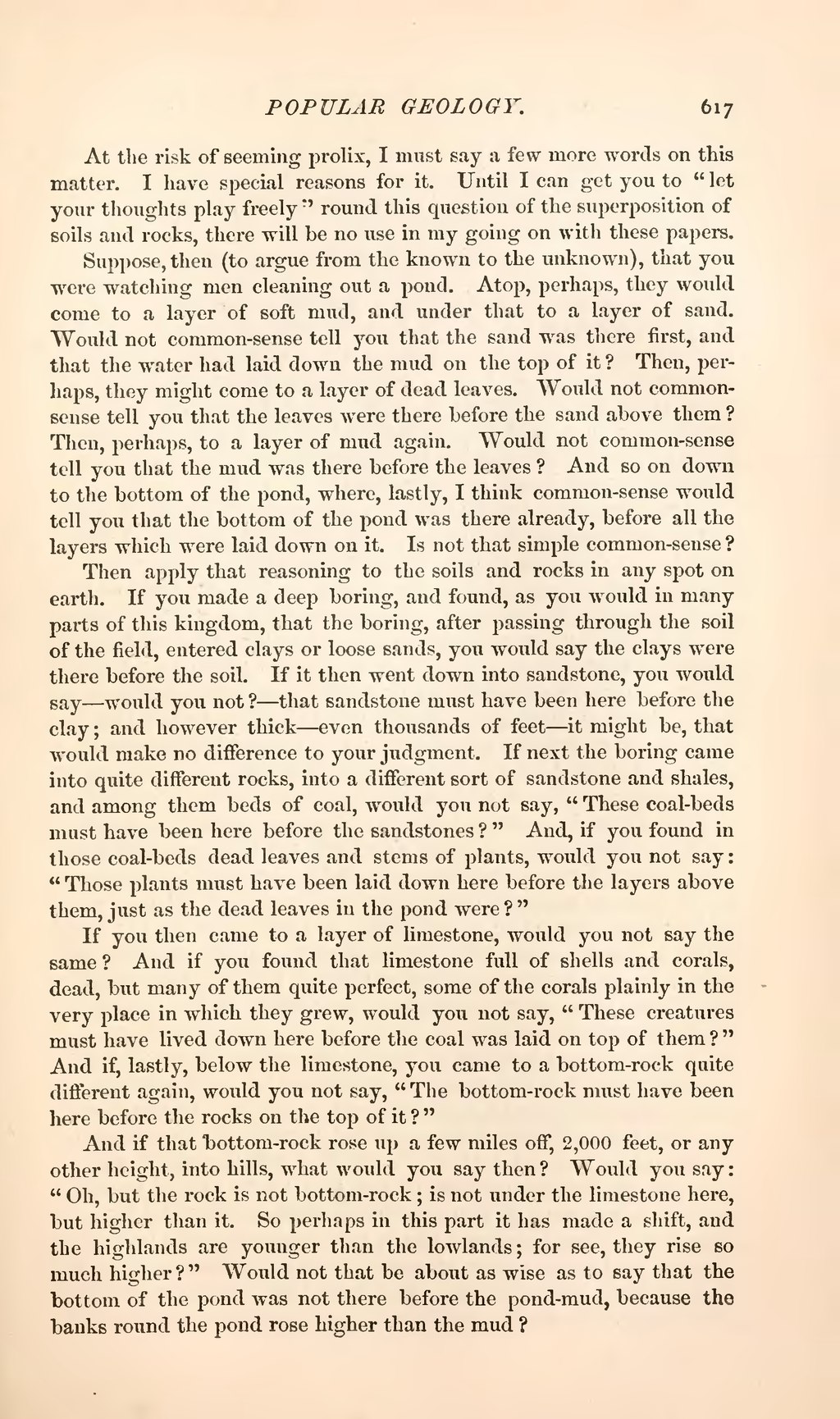At the risk of seeming prolix, I must say a few more words on this matter. I have special reasons for it. Until lean get you to "let your thoughts play freely: round this question of the superposition of soils and rocks, there will be no use in my going on with these papers.
Suppose, then (to argue from the known to the unknown), that you were watching men cleaning out a pond. Atop, perhaps, they would come to a layer of soft mud, and under that to a layer of sand. Would not common-sense tell you that the sand was there first, and that the water had laid down the mud on the top of it? Then, perhaps, they might come to a layer of dead leaves. Would not common-sense tell you that the leaves were there before the sand above them? Then, perhaps, to a layer of mud again. Would not common-sense tell you that the mud was there before the leaves? And so on down to the bottom of the pond, where, lastly, I think common-sense would tell you that the bottom of the pond was there already, before all the layers which were laid down on it. Is not that simple common-sense?
Then apply that reasoning to the soils and rocks in any spot on earth. If you made a deep boring, and found, as you would in many parts of this kingdom, that the boring, after passing through the soil of the field, entered clays or loose sands, you would say the clays were there before the soil. If it then went down into sandstone, you would say—would you not?—that sandstone must have been here before the clay; and however thick even thousands of feet—it might be, that would make no difference to your judgment. If next the boring came into quite different rocks, into a different sort of sandstone and shales, and among them beds of coal, would you not say, "These coal-beds must have been here before the sandstones?" And, if you found in those coal-beds dead leaves and stems of plants, would you not say: "Those plants must have been laid down here before the layers above them, just as the dead leaves in the pond were?"
If you then came to a layer of limestone, would you not say the same? And if you found that limestone full of shells and corals, dead, but many of them quite perfect, some of the corals plainly in the very place in which they grew, would you not say, "These creatures must have lived down here before the coal was laid on top of them?" And if, lastly, below the limestone, you came to a bottom-rock quite different again, would you not say, "The bottom-rock must have been here before the rocks on the top of it?"
And if that bottom-rock rose up a few miles off, 2,000 feet, or any other height, into hills, what would you say then? Would you say: "Oh, but the rock is not bottom-rock; is not under the limestone here, but higher than it. So perhaps in this part it has made a shift, and the highlands are younger than the lowlands; for see, they rise so much higher?" Would not that be about as wise as to say that the bottom of the pond was not there before the pond-mud, because the banks round the pond rose higher than the mud?

